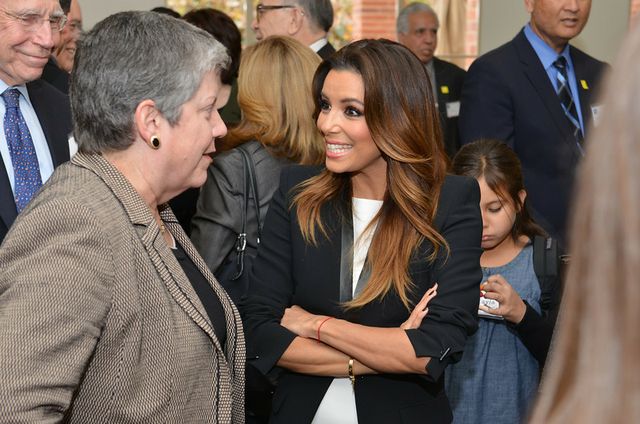Young Latinas who have Latina and Latino teachers and counselors as role models and who are involved in extracurricular activities in high school have a much better chance of educational success, according to a new research report from the Civil Rights Project/Proyecto Derechos Civiles at UCLA's Graduate School of Education and Information Studies.
The report, "Making Education Work for Latinas in the U.S.," and a companion video were commissioned by actress and philanthropist Eva Longoria, founder of the Eva Longoria Foundation. Longoria's foundation works to empower Latinas to reach their full potential through education and entrepreneurship.
"We were frustrated to primarily find analysis of what does not work for Latinas, and we wanted to find out what does," Longoria said. "The findings from this study will help us fine-tune our education work, and we hope others will use this research to support Latina achievement."
For the study, researchers examined the existing knowledge base about promoting Latina educational success, defined as completing high school and going on to secure a college degree. Among other findings, their report shows that involvement in extracurricular activities contributes to a sense of "belonging" at school, something researchers found missing for many Latinas.
The study also found that a strong belief by parents that their daughters will complete high school was associated with increased high school graduation and college attendance rates among Latinas. Additionally, having good math scores in elementary school and being bilingual were positive indicators of Latina college-going success.
The nation's largest minority group, Latinos make up the majority of all students in California, Texas and New Mexico. And while they graduate high school at somewhat higher rates than Native Americans and African-Americans, their college completion rates remain significantly lower. The study also reveals that despite an increase in college enrollment numbers for Latinos nationally, there has actually been a decline in the overall percentage of these students who enroll in college as a proportion of their population.
Boosting educational attainment among this population is dependent on a number of factors, but the role of Latinas in engendering such success cannot be underestimated, said the study's principal investigator, Patricia Gándara, a UCLA professor of education and co-director of the Civil Rights Project, one of the nation's most highly regarded research institutions on civil rights.
"Latinas are the linchpin of the next generation — how a child fares in school is highly correlated with their mother's education," Gándara said. "If the cycle of under-education is to be broken for the Latino population, it will depend to a large extent on changing the fortunes of young women."
The study examined two large data-sets, one national and one California-based, to determine predictors of successful educational outcomes for representative samples of Latina youth who have recently been in high school and college. The report also incorporated case studies of seven young Latinas from very challenging circumstances who found their pathway to educational success through high school, community college and four-year universities.
Panel discussion on report's findings
The study findings, as well as a concrete agenda for improving educational outcomes for Latinas, will be discussed at a Dean's Distinguished Speakers Series event on Monday, Dec. 2, at 4 p.m. in Korn Auditorium on UCLA's campus (map).
Marcelo M. Suárez-Orozco, dean of the UCLA Graduate School of Education and Information Studies, will moderate a panel discussion featuring Longoria and Gándara, along with University of California President Janet Napolitano and Antonia Hernandez, former president of the Mexican American Legal Defense and Education Fund (MALDEF) and current president and CEO of the California Community Foundation, which is funding the event. The California Community Foundation is a regional community advocate and one of the largest foundations of any kind in the United States.
For more news, visit the UCLA Newsroom and follow us on Twitter.




